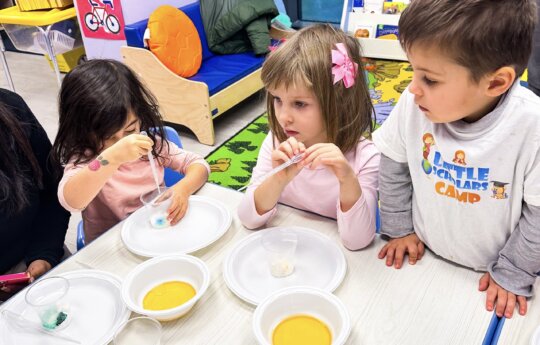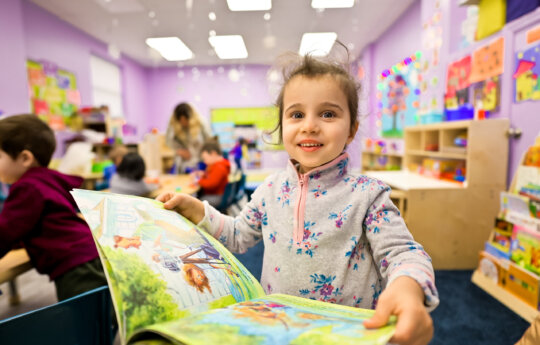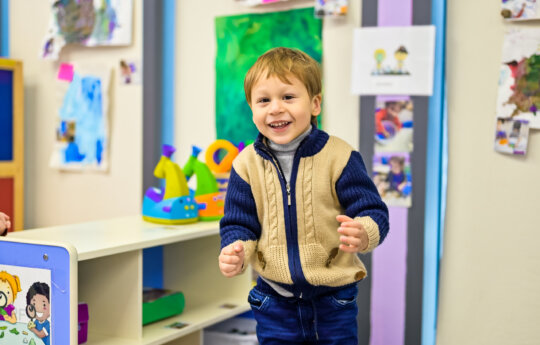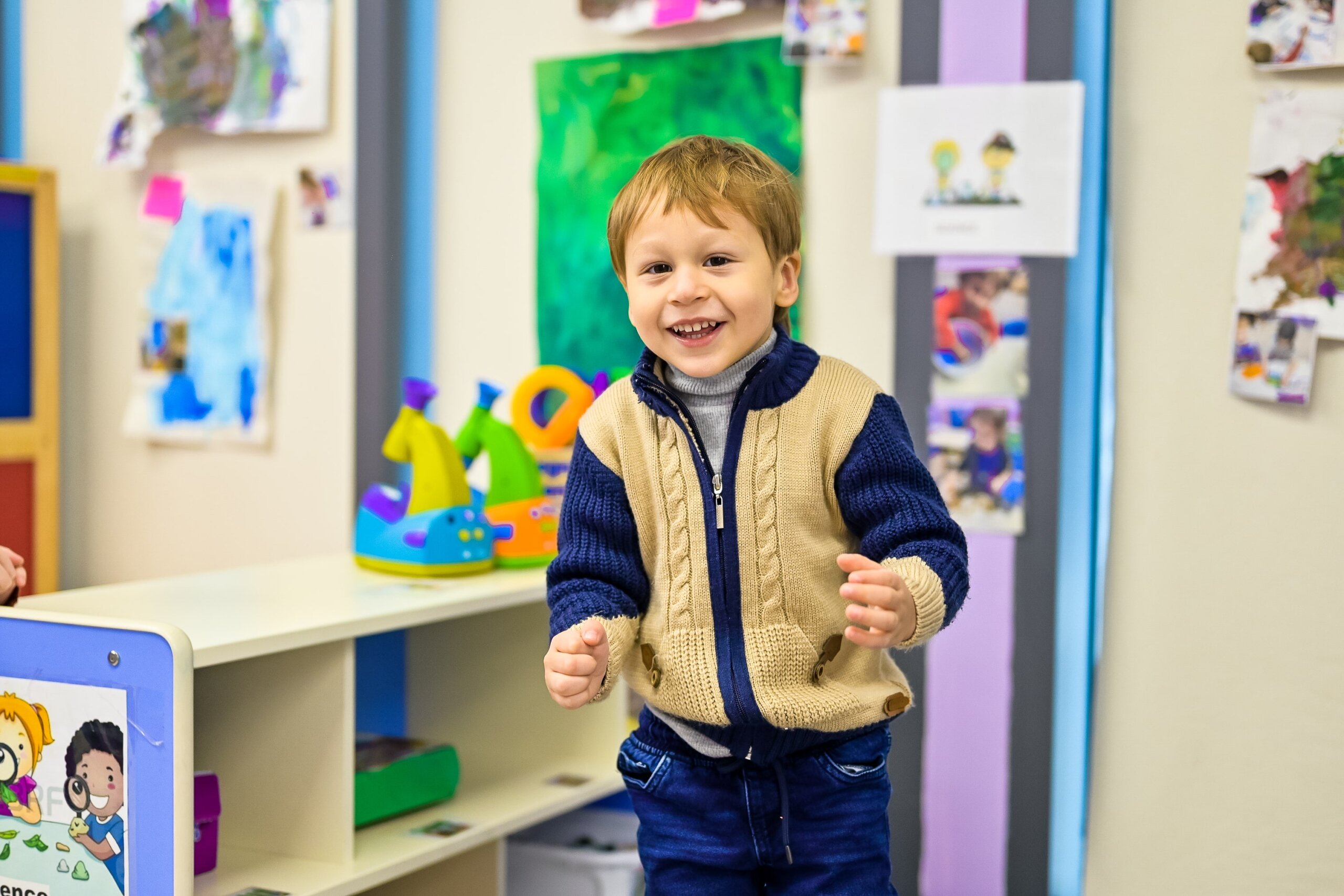
Developing a strong vocabulary in toddlers is a crucial component of early childhood education as it lays the foundation for successful communication and learning. A rich vocabulary helps toddlers express themselves clearly and understand others.
This article will discuss important milestones in toddler language development, such as when children generally begin speaking in sentences and the age by which most toddlers have a vocabulary of around 200 words. We will provide a comprehensive vocabulary checklist for toddlers, outline clear objectives for vocabulary development, and suggest practical strategies to improve their vocabulary through fun activities, storybooks, games, and vocabulary cards. Additionally, we will offer useful tips for parents and educators to help toddlers expand their vocabulary, ensuring they acquire the necessary language skills for their ongoing growth and learning.
Dive into the world of toddler vocabulary enhancement by exploring our curated activities, games, and reading recommendations to empower your child’s language journey today!
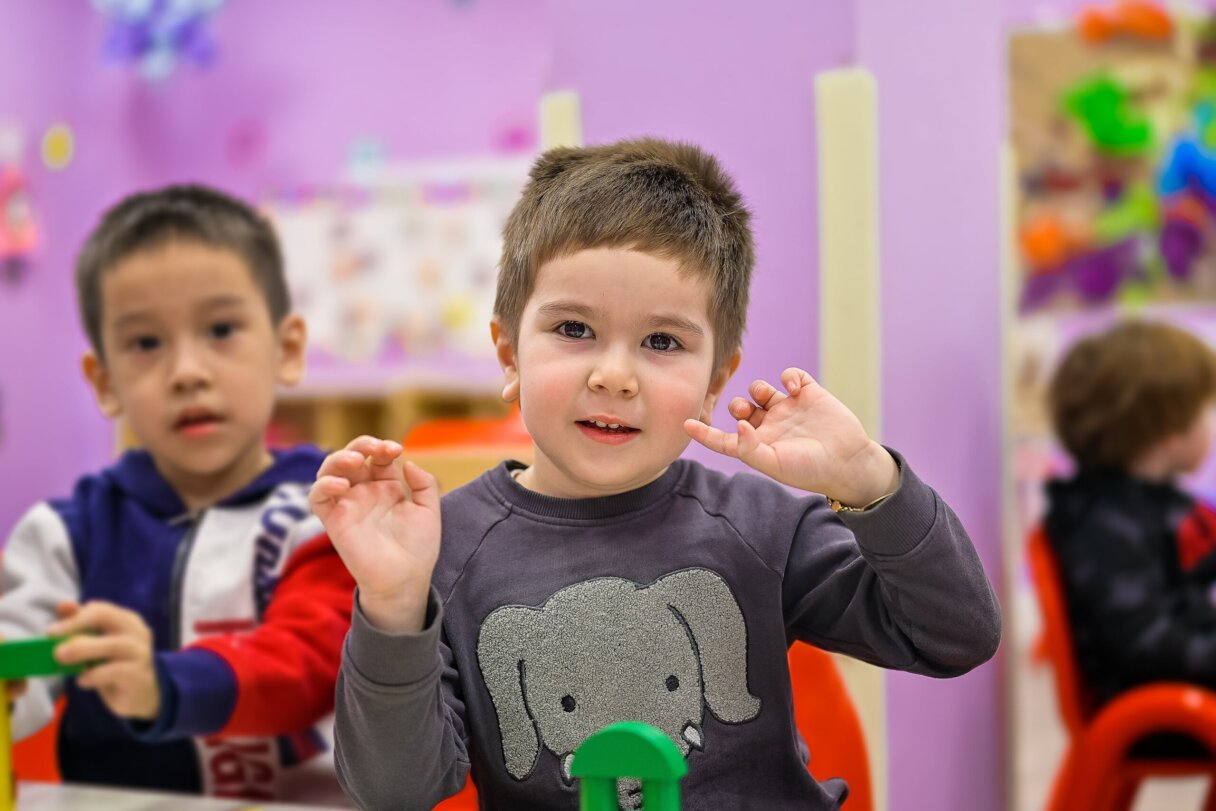
Understanding Toddler Vocabulary
Definition of Key Terms
- Vocabulary Words for Toddlers: These are the specific words that toddlers, typically between the ages of 1 and 3, begin to understand and use as part of their developing language skills. These words can range from common nouns and verbs to adjectives and social phrases, reflecting their daily experiences and interactions.
- Vocabulary for Toddlers: This term encompasses the entire set of words that a toddler recognizes and can articulate. It signifies not just the spoken words but also those that toddlers can comprehend, which is crucial for their overall language development. The vocabulary for toddlers is a fundamental aspect of their communication abilities, directly influencing their ability to express thoughts, desires, and emotions effectively.
Understanding toddler vocabulary involves recognizing the stages of language acquisition and the importance of nurturing this development through daily interactions, reading, and play. Providing a rich language environment, filled with a variety of vocabulary words for toddlers, is essential for fostering their language skills and cognitive growth.
When do kids start talking in sentences?
Kids typically start talking in sentences between 2 and 3 years old. This developmental milestone is an exciting phase where toddlers begin to string words together to express more complex ideas and emotions. The transition from single words to two- and three-word sentences marks a significant leap in language skills, indicating an expanding vocabulary and improved understanding of language structure. By age 2, many children can use simple two-word phrases, and as they approach 3, their sentences become more complex, incorporating a more comprehensive range of vocabulary and grammatical structures.
By what age do toddlers usually have a vocabulary of about 200 words?
By the age of 2, toddlers typically have a vocabulary of about 200 words. This milestone in language development signifies their growing ability to communicate and express their thoughts and needs. The vocabulary range can vary, with some children using fewer words and others more, but around this age, many toddlers begin to put words together into simple sentences, further expanding their communication skills. The number of words a toddler knows is an essential indicator of their language development and can be a predictor of future linguistic and cognitive abilities.
Vocabulary Objectives for Toddlers
Goals and milestones for toddler vocabulary development can be effectively outlined by age to track and support their language progression:
12 to 18 months
Toddlers at this stage typically can say 10 to 20 words. These words are often nouns that name familiar objects and people. The goal is for toddlers to use words to identify items and begin to express their needs.
18 to 24 months
By this age, toddlers may have a vocabulary of 50 to 100 words. They start to combine two words to form simple sentences like “more milk” or “mommy go.” The focus here is on expanding the variety of words they know, including action words, and beginning to form two-word phrases.
24 to 30 months
A vocabulary of 200 to 300 words is common, with toddlers forming three- to four-word sentences. They can understand and use verbs, adjectives, and nouns more effectively. Goals include increasing sentence length using simple sentences to ask questions and describe objects and actions.
30 to 36 months
By the end of their third year, toddlers can typically use 900 to 1,000 words and speak in more complex and compound sentences. They should be able to narrate their experiences and engage in simple conversations. The aim is to refine their ability to use language for different purposes, such as storytelling, requesting, and information sharing.
Vocabulary Checklist for Toddlers
A vocabulary checklist for toddlers serves as a guide for the essential words and phrases that are crucial for their early communication development. This list typically includes basic nouns for everyday objects, action verbs, common adjectives, and key social phrases that facilitate interaction. For toddlers, learning the names of familiar items, people, and actions, as well as words like “please” and “thank you,” helps them express their needs and feelings effectively. The checklist should be dynamic, reflecting the child’s evolving experiences and environments, and can be used by parents and educators to ensure a well-rounded language learning process. Engaging toddlers with these words in various contexts through reading, conversation, and play enhances their understanding and use of the language. For a comprehensive vocabulary checklist tailored for toddlers, you can refer to the checklist provided by the University of Nebraska-Lincoln, which outlines essential words and phrases for toddler communication development.
Vocabulary cards for toddlers as a tool
Vocabulary cards for toddlers are an effective and engaging educational tool that supports language development by introducing new words in a visually stimulating manner. These cards typically feature an image on one side and the corresponding word on the other, helping toddlers to make connections between objects and their names. Vocabulary cards can be used in various playful and interactive ways, such as matching games, memory games, or simple flashcard drills, to enhance word recognition and retention. They are particularly beneficial for building active vocabulary, as they encourage toddlers to practice articulation and sentence formation.
The use of these cards can be tailored to the child’s developmental stage, starting with simple words and gradually introducing more complex vocabulary and phrases. By regularly integrating vocabulary cards into learning activities, parents and educators can create a dynamic and enjoyable learning experience that fosters early language skills and prepares toddlers for more advanced communication.
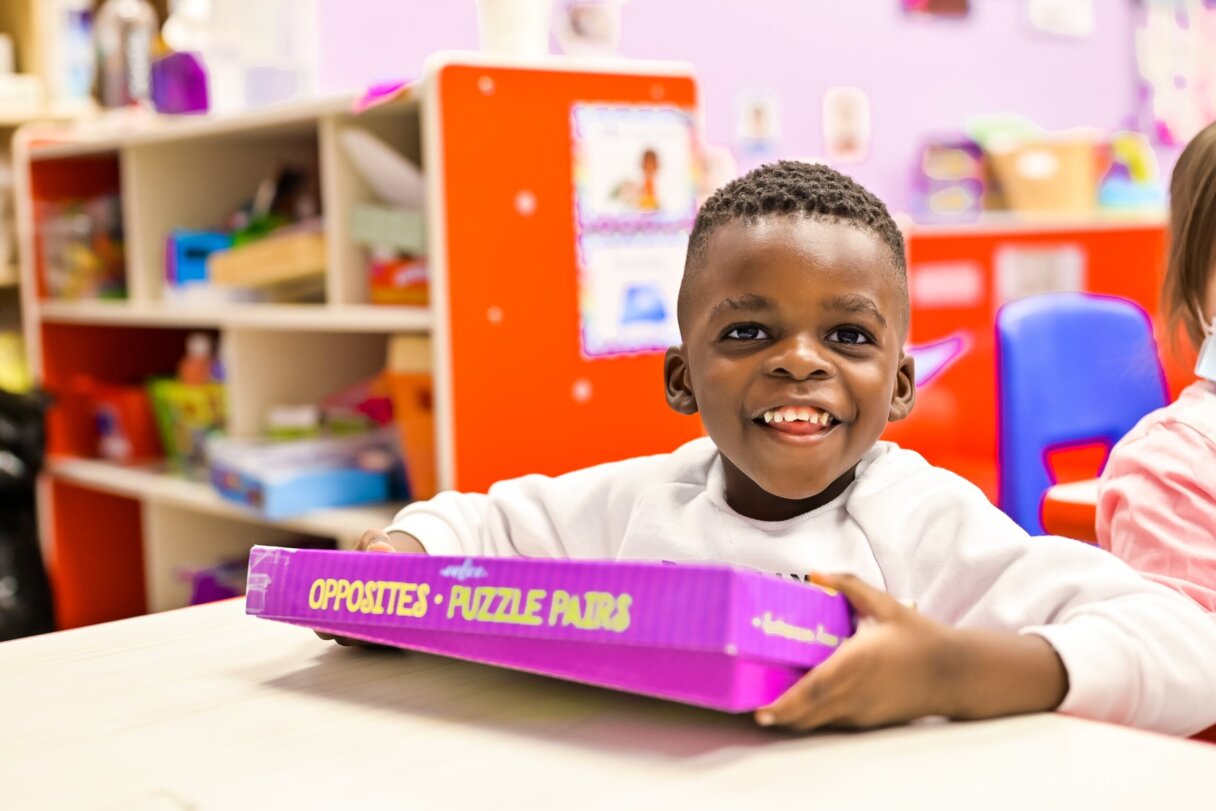
Vocabulary Activities for Toddlers
Vocabulary games for toddlers
Activities to enhance toddlers’ vocabulary can be educational and enjoyable, offering interactive opportunities to learn new words and concepts. Here’s a list of vocabulary games tailored for toddlers:
- Picture Word Match: Children match words to pictures, reinforcing word recognition and comprehension.
- Object Hide and Seek: Hide objects around the room and describe them, encouraging toddlers to find them using the vocabulary words.
- Storytelling Sequences: Use picture cards to create stories, prompting toddlers to narrate the sequence and introduce new vocabulary.
- Color and Shape Bingo: Play bingo using colors and shapes, enhancing vocabulary related to common attributes.
- Animal Sounds Game: Associate animal pictures with their sounds, expanding vocabulary related to animals and onomatopoeic words.
- Body Part Tag: Name body parts and have toddlers touch them, increasing anatomical vocabulary.
- Simple Simon Says: A game of Simon Says with actions and body parts, teaching verbs and body-related terms.
- Food Tasting Party: Introduce new foods and describe their taste, texture, and color, broadening vocabulary related to food and sensory experiences.
- Nature Walk Scavenger Hunt: During a walk, identify and name natural elements like trees, flowers, and birds, enhancing outdoor and environmental vocabulary.
- Dress-Up Descriptions: While dressing up in different costumes, discuss the items and their characteristics, building vocabulary related to clothing and roles.
How storybooks aid vocabulary growth (storybooks for toddlers vocabulary)
Storybooks play a crucial role in aiding vocabulary growth among toddlers, as they introduce new words in meaningful and engaging contexts. Through storybooks, toddlers are exposed to a variety of language structures and vocabulary that they might not encounter in everyday conversation. The narrative and illustrations in storybooks provide visual cues that help toddlers connect words with their meanings, enhancing their comprehension and retention.
Reading aloud to toddlers introduces them to the sounds and rhythms of language and stimulates their imagination and curiosity about the world. Furthermore, interactive reading practices, such as asking questions about the story and encouraging toddlers to predict what will happen next, promote active participation and deeper language processing. This engagement with storybooks fosters a love for reading and learning, setting the foundation for lifelong language development and literacy skills.
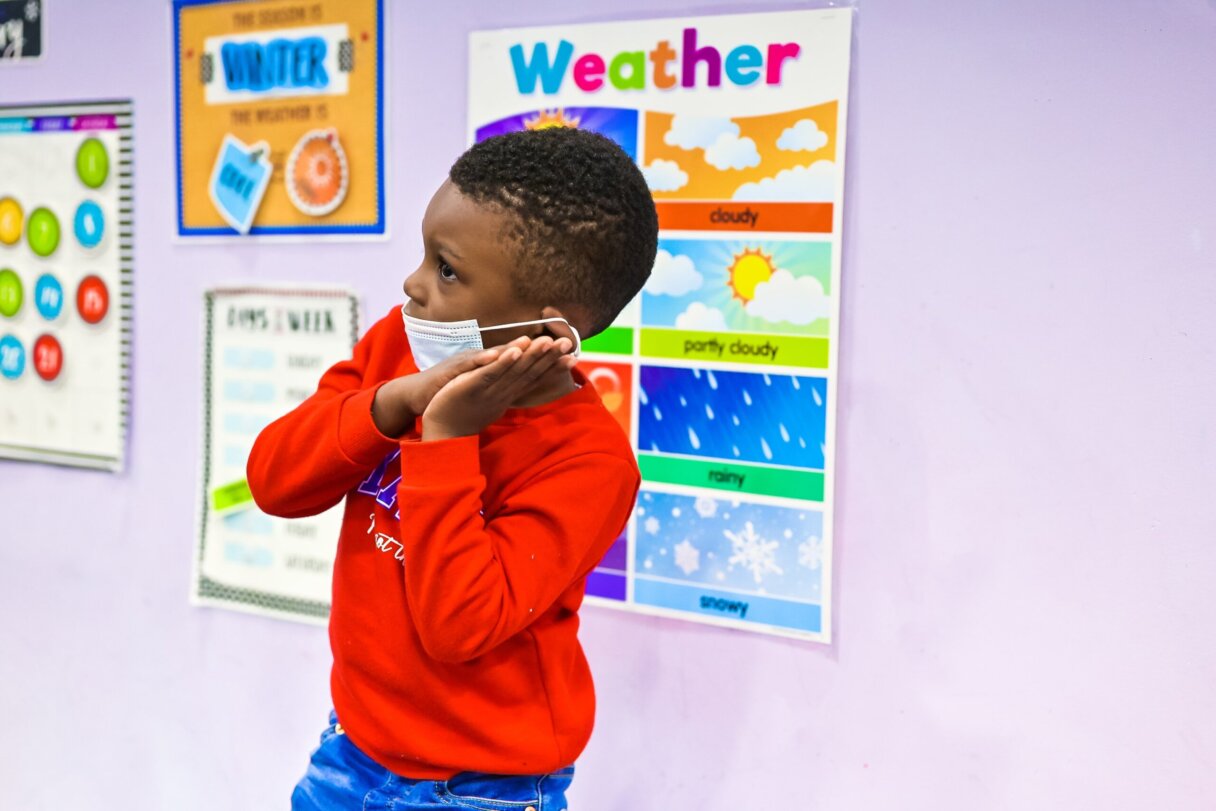
Helping Your Toddler Improve Their Vocabulary
Practical tips and strategies for parents and caregivers
Practical tips and strategies can be immensely helpful for parents and caregivers looking to support toddler vocabulary development. Consistent interaction through talking, reading, and playing can significantly enhance language acquisition. Here are some key strategies:
- Talk regularly to your toddler in varied and descriptive language to introduce new vocabulary in context.
- Read daily, choosing a range of books that include picture books, stories, and informational texts to expose toddlers to different types of language.
- Engage in play that stimulates language use, such as role-playing, storytelling, or games that require verbal interaction.
- Encourage curiosity by answering questions, explaining new words, and discussing interesting topics to foster language exploration.
- Use repetition of words and phrases in different contexts to reinforce understanding and memory.
- Expand on your child’s speech by adding more information to what they say, which helps build more complex language structures.
- Sing songs and nursery rhymes to introduce rhythmic patterns and rhyming words that enhance phonetic awareness.
- Provide positive feedback for communication attempts, encouraging more speech and language practice.
- Introduce vocabulary cards or flashcards as a fun way to learn new words and concepts.
- Create a language-rich environment where your toddler is exposed to various words and encouraged to use language expressively and receptively.
Implementing these strategies can create a supportive learning environment that promotes toddlers’ vocabulary growth and language skills.
Role of interaction and engagement in learning
Interaction and engagement play pivotal roles in the process of learning, especially in the context of toddler vocabulary development. Engaging with toddlers through conversation, play, and reading activities provides them with the necessary exposure to language and opportunities to practice new words.
Interaction with caregivers and peers allows toddlers to hear language used in diverse contexts, which enhances their understanding of word meanings and uses. Active engagement, such as asking questions, responding to the child’s attempts to communicate, and providing feedback, supports language acquisition by making the learning process dynamic and responsive to the child’s needs and interests.
This two-way communication fosters a deeper connection between the child and the language, facilitating more effective and meaningful learning. Moreover, engagement through interactive activities encourages toddlers to be active participants in their learning journey, promoting cognitive development and language skills in a natural and enjoyable manner.
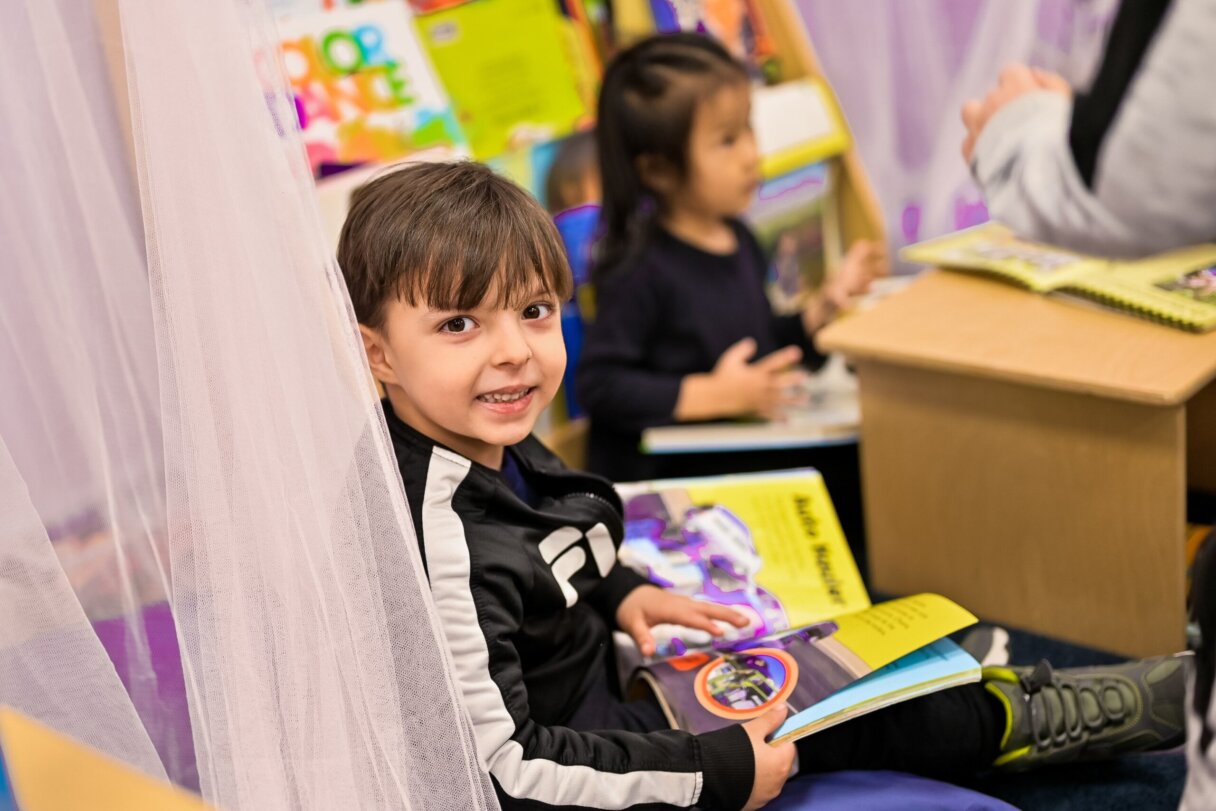
Resources and Tools
Recommended books for toddler vocabulary development
- Duck and Goose by Tad Hills – Encourages speech and introduces early language skills.
- Touch and Feel Books – Enhances vocabulary with tactile experiences.
- Priddy Baby Books – Offers real pictures and categorized content for easy learning.
- Your Baby’s First Word Will Be Dada by Jimmy Fallon – Teaches animal names, sounds, and simple questions.
- Finger Play Books/Songs – Engages toddlers with interactive songs and activities.
Moreover, classic and interactive books like “Brown Bear, Brown Bear, What Do You See?” by Bill Martin Jr. & Eric Carle, and “Press Here” by Herve Tullet, engage toddlers in learning colors, animal names, and interactive play, which are essential for vocabulary development and cognitive skills
Recommended app for toddler vocabulary development
In addition to books, apps like Speech Blubs are designed to boost speech development in toddlers through engaging and interactive content. This app offers a variety of activities, including new words, sentence building, and phonetic exercises, making it a comprehensive tool for language acquisition
Conclusion
The development of a strong vocabulary in toddlers is an essential part of early childhood education, setting the stage for effective communication and learning. This article has explored the significant milestones of toddler language development, providing a roadmap for parents and educators to foster this growth through targeted objectives and engaging activities.
By utilizing tools like vocabulary checklists, cards, and games, alongside the enriching world of storybooks, caregivers can create a nurturing language environment that supports the expansion of a toddler’s vocabulary. Moreover, the strategies and resources outlined serve as a valuable guide to enhancing interactive and meaningful learning experiences, thereby ensuring toddlers are well-equipped with the language skills necessary for their ongoing development and success.
Unlock Your Child’s Potential at Little Scholars Daycare!
Enroll today and give your little one the gift of a nurturing environment where curiosity blossoms and learning thrives. Discover a world of interactive play, educational activities, and language development that sets the foundation for a bright future. Join the Little Scholars family now and watch your child grow, learn, and succeed. Contact us to schedule a visit or learn more about our programs. Your child’s journey to becoming a little scholar starts here!

